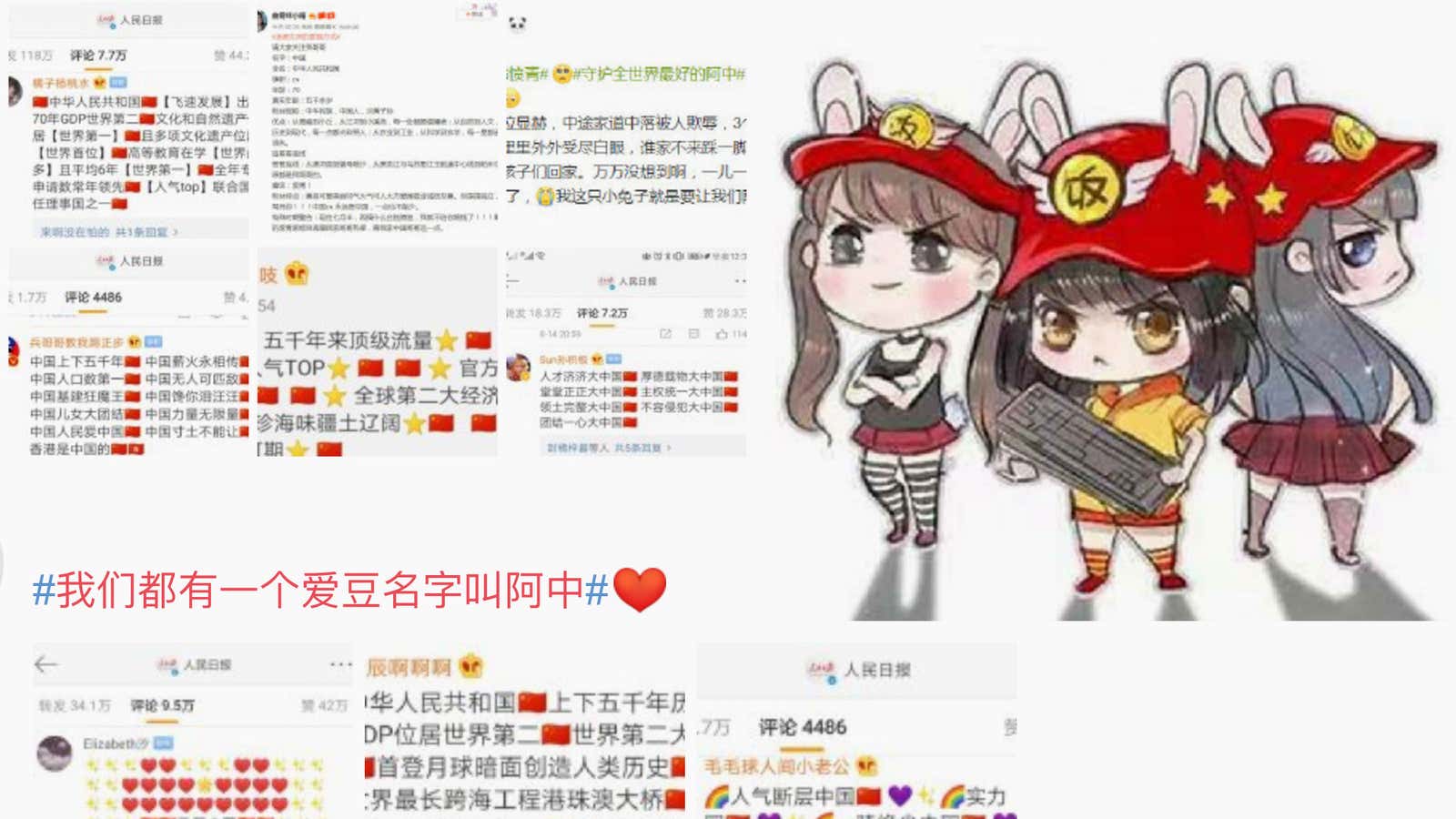The kids are not all right, according to China’s top internet regulator, which announced today (June 15) that it is launching a campaign to crackdown on the “chaos” in online fan communities.
China’s fan clubs were once an important force that helped amplify the country’s nationalist messaging on issues like Hong Kong. But they’re increasingly viewed as a source of volatility that can too quickly divide public opinion, and the Communist Party now wants to rein in the bustling community’s influence and activities.
“For a period of time, members of the fan circles have hurled verbal abuses at each other, boosted the ranking of their idols on various charts, and spread rumors, which have undermined the clear cyber environment and caused negative impact to the mental and physical health of minors,” said the announcement.
Heavily influenced by similar fan cultures in Japan and South Korea, China’s organized fan clubs are an important force in the country’s online entertainment industry. The clubs, which can be created either by a celebrity’s marketing agency or by fan followers themselves, often organize donations or campaigns for supporting the stars they like. These can involve splashing money on the products the celebrities endorse, or coming up with various ways to get votes for idols competing in TV contests. In a country where few have the chance to cast their ballots for politicians, fan communities have become a channel for the public, especially for teenagers and college students, to mobilize and express their passionate loyalty to public figures.
But as Beijing continues to enhance its controls on online speech, especially ahead of the Party’s celebrations of the 100th anniversary of its founding next month, the fan clubs’ hold over their members is looking increasingly like a problem.
In May, TV authorities terminated the season finale of a popular reality contest show Youth With You 3 that aired on Chinese streaming website iQiyi after a video allegedly showing people buying a yogurt drink and throwing it away in order to scan QR codes printed on the bottle caps as a way to get votes for participants of the show. (Sixth Tones notes the people shown in the video were not young and impressionable.) In the same month, a senior official at the internet watchdog said the agency has listed obsessive fan culture as a focus of its current phase of “cleaning up” the internet, aiming to standardize the activities of “chaotic fan circles.”
The campaign will target five significant problems in the community, including extravagant spending by teenagers to push up the rankings of pop stars or reality TV contestants, fans showing off their wealth and extravagant lifestyles, and the deployment of bots or internet armies to shape comments about stars online. Accounts of clubs that have encouraged fans to pool money to support stars and spread rumors will be shut down or dismissed, while internet platforms that tolerated such behavior will also be punished severely, it said. Eventually, the regulator hopes to guide teenagers to chase stars “rationally” with the help of talent management agencies and social media platforms, and push the fan culture to have a “healthy development.”
The online clubs have become so influential that in recent years, Beijing has sometimes sought their help for promoting nationalist propaganda. In June 2019, when millions of people marched in Hong Kong to protest against a controversial extradition bill, China’s Communist Youth League posted a hashtag on Weibo titled #The fan girls’ crusade# to praise members of fan clubs that fought against critics of Hong Kong celebrities who backed the bill on platforms like Twitter.
“No one had thought the fangirls who used to be ridiculed for their crazy fan behavior before would become the first to aggressively fight back the Hong Kong protesters,” said the league in a post under the hashtag.
But Beijing’s favor for crazy fan behavior has seemingly come to at least a temporary end.
